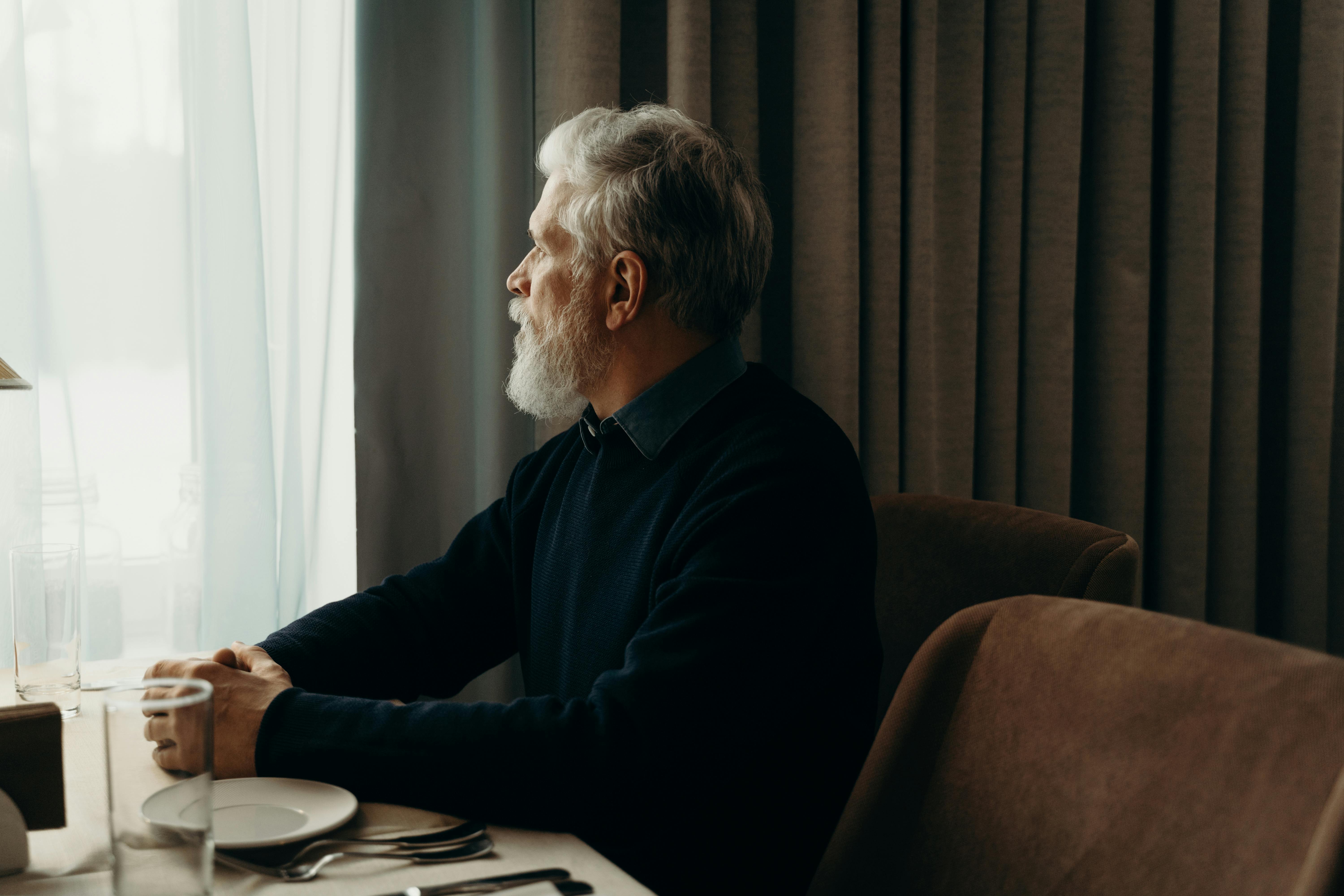When you're in the middle of an intense wave of anxiety, minutes can feel like hours. If you've ever experienced sudden feelings of fear, racing thoughts, or physical symptoms like a pounding heart, you might be wondering: "How long will this last?" Understanding the typical duration of anxiety and panic episodes can help you feel more in control and know what to expect.
Key Takeaways
Panic attacks typically last 5-30 minutes with symptoms peaking within the first 10 minutes, though they feel much longer when you're experiencing them
Anxiety episodes can vary widely from minutes to hours, days, or longer, depending on the trigger and individual factors
Time perception changes during attacks - what feels like an hour may actually be just 10 minutes, which is why understanding typical durations can be reassuring
Understanding Anxiety Attacks vs. Panic Attacks
Before we talk about how long these episodes last, it's important to understand that "anxiety attack" and "panic attack" are often used interchangeably, but they're actually different experiences.
What Is a Panic Attack?
A panic attack is a specific medical term with clear criteria. Panic attacks are defined by the Diagnostic and Statistical Manual of Mental Health Disorders (DSM) as "an abrupt surge of intense fear or discomfort" reaching a peak within minutes.
According to some experts, if symptoms don't peak within 10 minutes, it's not considered a panic attack (which has a sudden onset of panic). Instead, it's considered high anxiety.
Panic attacks must include at least four of these symptoms:
Palpitations or rapid heart rate
Sweating
Trembling or shaking
Shortness of breath
Feelings of choking
Chest pain or discomfort
Nausea or stomach upset
Dizziness or lightheadedness
Chills or hot flashes
Numbness or tingling
Feelings of unreality or being detached from yourself
Fear of losing control or "going crazy"
Fear of dying
What Is an Anxiety Attack?
"Anxiety attack" is not an official clinical term, but it's commonly used to describe periods of intense anxiety that may be less sudden than panic attacks.
The phrase "anxiety attack" is not a recognized medical term. However, if you have an anxiety disorder, you may use the term to describe the onset of intense, acute feelings of fear, worry, or stress brought on by specific situations.
Anxiety symptoms can include:
Excessive worry
Restlessness or feeling on edge
Fatigue
Difficulty concentrating
Muscle tension
Sleep problems
Physical symptoms like rapid heartbeat, sweating, or nausea
How Long Do Panic Attacks Last?
Panic attacks have a predictable pattern and don't last very long.
Typical Duration
Most research has described single panic attacks lasting up to 30 minutes. More specifically:
Research indicates that the duration of a panic attack typically ranges from four to six minutes
Panic attacks, however, typically last between 5 and 20 minutes, with symptoms peaking within the first few minutes
The intense symptoms usually peak within the first 10 minutes
Peak and Recovery Pattern
Panic attacks follow a specific pattern:
Sudden onset - Symptoms appear abruptly
Rapid peak - Intensity reaches its highest point within minutes
Gradual decline - Symptoms slowly fade away
In a panic attack, symptoms come on suddenly, peak, and then gradually fade away. Physical symptoms are often the first to subside, though depending on your anxiety levels, you may continue to hyperventilate and experience chest and abdominal discomfort.
What About Longer Episodes?
Some reports by individuals have described attacks lasting hours or even days. However, these longer episodes might actually be:
Multiple panic attacks occurring in waves
High anxiety rather than true panic attacks
A combination of panic attacks followed by ongoing anxiety
It's also possible to experience multiple panic attacks that occur in waves for an hour or longer. If you have panic attack symptoms for an hour or more, you may really be having a wave of panic attacks, one after another. There's actually a period of recovery between them, though you may not notice it.
Support for Managing Anxiety with Blossom Health
Anxiety attacks can be intense and unpredictable, but you don’t have to manage them alone.
At Blossom Health, our licensed providers help you understand triggers, develop coping strategies, and combine therapy with personalized care to reduce the impact of anxiety on your daily life.
How Long Do Anxiety Episodes Last?
Anxiety episodes can vary much more in duration than panic attacks.
Range of Duration
Some people, especially those with an underlying anxiety disorder, may experience sustained anxiety for hours, days, or even weeks at a time.
Anxiety episodes can typically last between a few minutes and thirty minutes. They will typically peak in five minutes or less.
However, anxiety can also be:
Short-term: Lasting minutes to hours in response to specific stressors
Ongoing: Persisting for days, weeks, or even months
Chronic: Part of ongoing anxiety disorders
Factors Affecting Duration
Several factors can influence how long anxiety lasts:
Trigger identification: If you can identify and address the trigger, anxiety may resolve more quickly
Coping skills: People with effective coping strategies often experience shorter episodes
Severity: More severe anxiety tends to last longer
Individual differences: Everyone's experience is unique
What Happens After the Attack?
Even after the main symptoms subside, you might continue to feel effects.
Lingering Symptoms
The main symptoms that can linger are behavioral or cognitive symptoms. General anxiety may persist after the attack. You might experience:
Continued worry about having another attack
Physical exhaustion
Muscle tension
Difficulty concentrating
General uneasiness
Recovery Time
Complete recovery can take:
Immediate: Some people feel better as soon as the attack ends
Hours: Others may feel drained or anxious for several hours
Days: In some cases, it may take a day or two to feel completely back to normal
Why Time Feels Different During an Attack
One of the most common experiences during anxiety or panic episodes is that time seems to slow down or speed up.
Perception vs. Reality
More often than not, time slows down during an anxiety attack, and ten minutes could feel like an entire hour. Despite the brief duration, individuals often perceive the experience as lasting much longer due to the intense distress involved.
This happens because:
Your brain is in a heightened state of alertness
You're hyper-focused on your symptoms
The intensity makes each moment feel longer
Your sense of time can become distorted when you're afraid
Recognizing the Differences
Understanding whether you're experiencing a panic attack or anxiety episode can help you know what to expect.
Panic Attack Characteristics
Sudden onset: Comes out of nowhere
Intense symptoms: Very severe physical and emotional symptoms
Short duration: Usually peaks within 10 minutes and resolves within 30 minutes
Unpredictable: Often no clear trigger
Anxiety Episode Characteristics
Gradual build-up: Often develops slowly
Varied intensity: Can range from mild to severe
Longer duration: Can last hours, days, or longer
Triggered: Usually has an identifiable cause or stressor
What to Do During an Episode
Knowing what to expect can help, but having coping strategies is equally important.
For Panic Attacks:
Remember that it will pass quickly (usually within 10-30 minutes)
Focus on your breathing - try slow, deep breaths
Use grounding techniques (5-4-3-2-1: name 5 things you see, 4 things you hear, etc.)
Remind yourself that you're not in danger
For Anxiety Episodes:
Try to identify the trigger
Practice relaxation techniques
Break the problem down into manageable parts
Engage in calming activities
Breathing Techniques
First things first: Breathe. You're probably hyperventilating, but stabilizing your breathing can quickly calm your body's fight-or-flight response. Try counting your breaths. One deep breath in, one deep breath out. Count up to 10 and then start again until your breathing is back to normal.
Try "belly breathing":
Put one hand on your chest, one on your stomach
Breathe in slowly through your nose, filling your belly
The hand on your chest should stay still
Exhale through your mouth
When to Seek Help
While anxiety and panic episodes are common, you should consider getting professional help if:
Immediate Help Needed
You think you might be having a heart attack
You're having thoughts of harming yourself
You can't breathe or are having severe chest pain
You feel like you're losing touch with reality
Professional Support Recommended
Episodes are happening frequently (more than once a week)
You're avoiding activities or places due to fear of having an attack
Your symptoms are interfering with work, relationships, or daily life
You're using alcohol or drugs to cope
You're developing a fear of having more attacks
Panic attacks can be extremely uncomfortable. Although they're not physically harmful, they can take a toll on your mental health.
Medical Disclaimer
This article is for educational purposes only and does not constitute medical advice. The information provided should not replace consultation with a qualified healthcare provider. Individual responses to medications can vary significantly, and what applies to one person may not be safe for another.
Always consult with your doctor or pharmacist before making any decisions about medication changes, discontinuation, or interactions with other substances. If you're experiencing concerning symptoms or side effects, please seek professional help from a healthcare provider. In case of a medical emergency, contact your local emergency services immediately or call 911. For mental health emergencies, contact the National Suicide Prevention Lifeline at 988.
Important: This information is not a substitute for professional medical advice. Never stop taking prescribed medication or make changes to your treatment plan without consulting your healthcare provider first. Your safety and well-being are the top priorities.
Sources
Healthline - How Long Do Panic Attacks Last: Duration, Coping, and More
Cleveland Clinic - Panic Attacks & Panic Disorder: Causes, Symptoms & Treatment
Medical News Today - Panic attack vs. anxiety attack: What is the difference?
Choosing Therapy - How Long Do Panic Attacks Last? Duration & How to Cope



























































































































